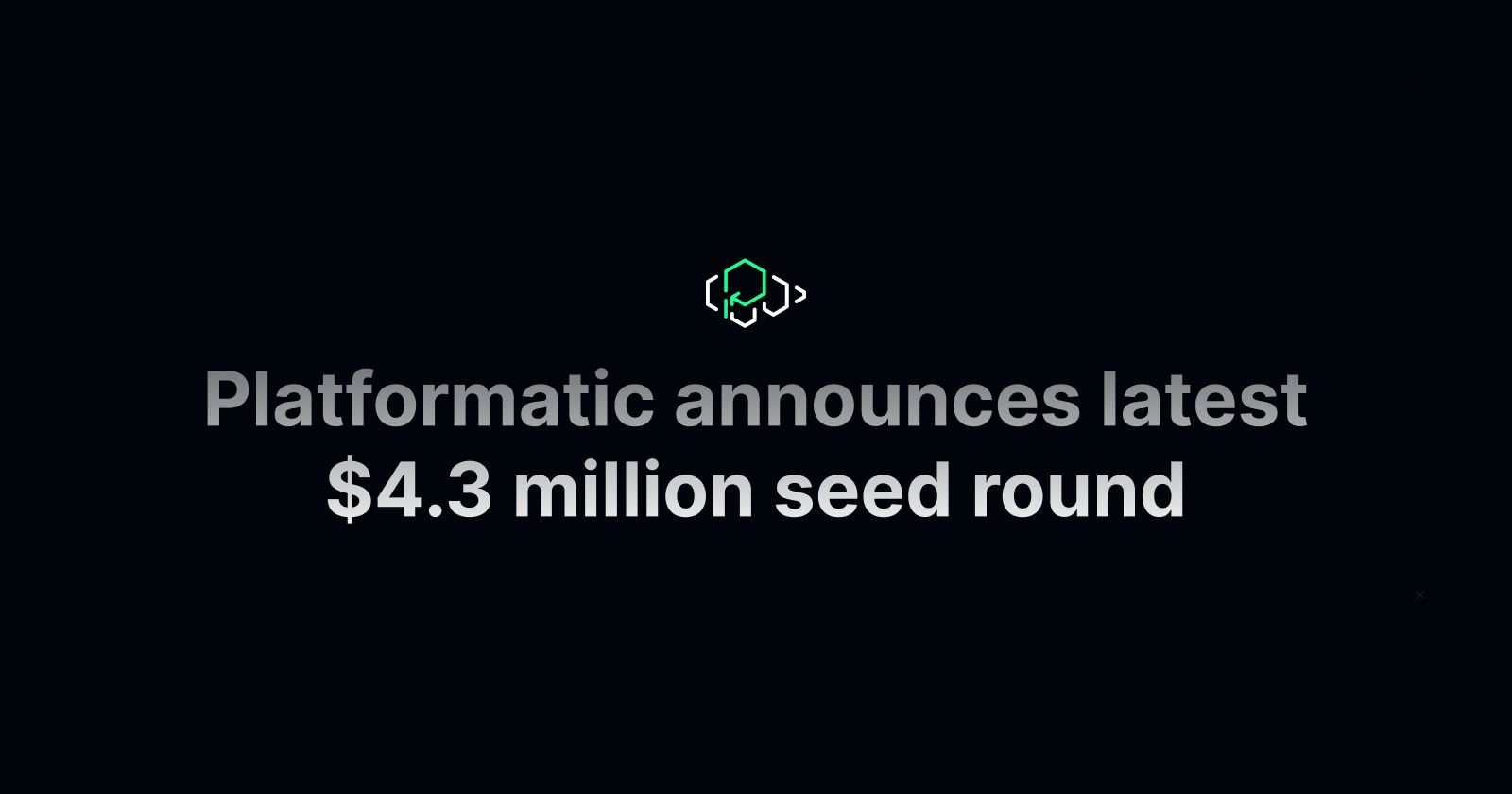Platformatic announces latest $4.3 million seed round
 Alexandra Manos
Alexandra Manos
Latest round, led by Rialto Ventures with participation from Decibel and Panache Ventures, brings total seed funding to $7.8 million
Platformatic’s transformative platform a ‘game-changer’ for enterprises struggling with Node.js complexities
Funding to be put toward bridging the operational gap between Node.js developers, operators, and the enterprise
Platformatic, the Node.js application platform, raises $4.3 million in its latest seed funding led by Rialto Ventures, with participation from existing investors Decibel and Panache Ventures. Following on from its initial funding round announced in June 2023, this brings Platformatic’s total funding to $7.8 million.
The investment will enable Platformatic to accelerate product development and address critical pain points that hinder enterprise teams from seamlessly deploying, scaling, and securing their Node.js applications.
Node.js today: Powerful but unruly for enterprise environments
Node.js has been an effective cornerstone for modern applications including Walmart and Netflix, and has over 2 billion annual downloads. However, despite its efficiency, its complexity and asynchronous nature can introduce significant operational challenges, including maintenance difficulties, scaling issues, and performance bottlenecks. These development challenges can balloon into larger, enterprise-wide issues, including longer time-to-market, higher churn rates, increased compliance risks, and potential reputational damage due to system unreliability.
Many enterprises also struggle with juggling the complexities of managing multiple environments and non-functional requirements like logging, tracing and resource allocation, while also facing difficulties in recruiting experienced Node.js developers. Combined, these problems often lead to inefficient workarounds, complex architectures, and delayed go-to-market timelines.
Bridging the gap between Node.js developers, operators, and the wider business
Today, Platformatic launches additional functionality within its cloud-native Node.js application platform to tackle these challenges.
“In my years spent as a CTO, my time was torn between bridging the needs of developers, operators, and the business” said Luca Maraschi, co-founder and CEO of Platformatic. “With our enterprise offering, we set out to build the path to the most optimized version of your Node.js app that works for you, your team and architecture. The functionality we offer provides the missing layer to connect our users’ infrastructure with their platform and its operations.”
New Platformatic features:
Watt Application Server: Watt is an open-source application server that simplifies Node.js development by unifying the frontend and backend without requiring a complete rewrite. Watt automatically handles essential tasks such as logging, tracing, and observability, and introduces multithreading to boost performance.
Intelligent Autoscaler: The autoscaler is designed to dynamically adjust Kubernetes clusters in response to traffic spikes and Node-core metrics, ensuring optimal performance. By contextualizing Node.js and its applications within clusters, the autoscaler intelligently manages event loops and handles concurrent requests with precision, allowing applications stay responsive and efficient, even under varying loads.
Command Center: Leveraging the power of Watt, Platformatic’s Command Center allows developers, wider DevOps teams and their leadership to monitor, manage, and optimize all their Node.js applications within a single, unified dashboard. It provides insights into Node metrics, application taxonomy, audit logs, and deployment risk analysis, centralizing observability and management tasks.
“Our goal with this release is to create a seamless bridge between the nostalgia of Java with the speed and agility of cloud-native technologies,” said Maraschi. “Our platform is designed to optimize Node.js applications, making them more efficient and easier to manage from the top down and bottom up.”
The golden path to doing Node.js right in enterprise
Over the years, individual tools have emerged to provide a serverless experience. But the benefits of this haven’t fully been felt by Node.js teams, as they have been largely required to undergo massive time-consuming and costly rewrites in the process.
Platformatic is positioned as a game-changer for enterprises grappling with the complexities of Node.js. As Matteo Collina, co-founder and CTO of Platformatic, notes, “We’ve built a platform that not only enhances the power of Node.js but also simplifies the developer experience with out-of-the box-best practices. All that is needed to start is for users to integrate their existing Node.js, Fastify, Express, Koa, Next.js, Remix, or Astro applications. With this plug-and-play experience, we buy back time previously spent on repetitive development practices, empowering developers to reconnect with their creative and innovative tendencies.”
"Platformatic's founding team bring years of experience building and scaling Node.js applications for Fortune 500 companies, architecting their most critical Node.js applications” said Simone Brunozzi, General Partner and Co-Founder at Rialto Ventures. “Their vision for the future of Node.js and ability to understand the unique challenges faced by enterprises is what sets them apart, allowing them to deliver a truly game-changing platform”.
Platformatic’s suite of new tools is available today. Find out more at PlatformaticHQ.com
About Platformatic
Platformatic is the application platform for building, managing, and scaling Node.js applications. With Plaformatic, users can bridge the gap between their Node.js developers, operators, and the wider business. Platformatic is backed by Rialto Ventures, Decibel, and Panache Ventures. Learn more at PlatformaticHQ.com.
Contact
Alexandra Manos, Head of Marketing
Subscribe to my newsletter
Read articles from Alexandra Manos directly inside your inbox. Subscribe to the newsletter, and don't miss out.
Written by
